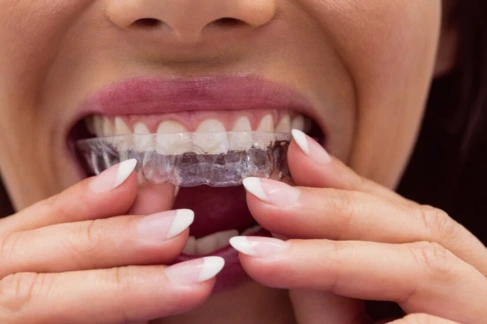Is Coffee Good For You Or Not? – What Scientists Believe

If you follow health articles in the news or on TV, you’ve probably seen a lot of contradictory information about coffee. Some people say it’s a miracle drink that cures cancer and makes you look and feel younger. Others say that drinking coffee trends is almost as bad as smoking.
We’ve taken a look at what scientists are saying – on both sides of the issue. Here’s what we’ll cover:
- We’ll look at how coffee fits into a healthy diet, and talk about some of the nutritional concerns you should have about your coffee habit.
- Next, we’ll discuss some of the myths – and truths – about coffee’s effects on your heart.
- We’ll also go over coffee’s effects on the rest of your body.
- Finally, we’ll see what scientists have to say about coffee’s effects on your brain.
Coffee and Nutrition
There are a few different things we need to talk about when it comes to coffee’s nutritional content.
- First is the caffeine. We’ll be talking about caffeine for the rest of this article, so we’ll leave that aside for now.
- Secondly, we have the chemicals in coffee beans themselves. Here, we have excellent news. According to the USDA, a cup of black coffee contains 6% of the recommended daily allowance (RDA) of Vitamin B5, 11% of the RDA of Vitamin B2, 3% of the RDA of manganese and potassium, and 2% of the RDA of Vitamins B3 and B1.
Besides all these vitamins, coffee is rich in flavonoids and antioxidants. If you’re using tap water, you’ll also get the benefits of any additional minerals in your water. That’s the good news about coffee beans.
The bad news is that they’re high in a chemical called cafestol, which can raise your cholesterol. Since cafestol isn’t water soluble, not much of it will get into your coffee if you’re using a drip-style stainless steel coffee maker. French presses and Turkish coffee, on the other hand, can leave a lot of grounds in your cup, which are full of cafestol.
- Finally, we need to look at whatever else you’re putting into your mug. Remember, the nutrition facts we linked to are for a cup of black coffee. If you’re using a lot of whole milk or sugar in your coffee, you’ll be getting potentially hundreds more calories without much nutritional benefit.
Coffee and Your Heart
For the rest of the article, we’ll be mostly talking about caffeine. This little molecule has gotten a bit of a bad rap. Early studies showed all kinds of health risks, from increased risk of cancer to heart attacks and strokes.
A lot of this confusion happened because early studies on caffeine didn’t take lifestyle into account. As more research has been done, it turns out that people who drink coffee are more likely to smoke, live sedentary lifestyles, and do other things that aren’t good for you.
When you control for lifestyle, coffee turns out to actually be good for you. We’ll get into some of caffeine’s health benefits in a minute, but for now, we’ll look at one true health risk of caffeine: heart attacks.
Now, don’t go throwing out all your coffee just yet. According to Dr. Vince Bufalino, spokesman for the American Heart Association, coffee only increases heart attack risks for certain patients who are experiencing atrial fibrillation or have high blood pressure.
In those cases, though, Dr. Bufalino has even worse news for people who are thinking of switching to decaf. “Decaf is not ‘no-caf’,” he says. “So if you are drinking three cups of decaf per day, then I would restrict that.”
Coffee and Your Physical Health
For the rest of your body, coffee is a net positive. In recent years, studies have shown that coffee drinkers have a lowered risk of Type 2 Diabetes. This is because coffee lowers your insulin sensitivity and glucose tolerance.
Is that not enough to make you drink a cup of coffee right now? How about the fact that coffee lowers your risk of cancer, particularly skin cancer? A cup or more of coffee per day also lowers your risk of liver disease, colorectal cancer and Alzheimer’s, and reduces inflammation.
There is one group of people who should avoid drinking too much coffee, though: pregnant women. Studies have shown that a fetus will receive the same concentration of caffeine as the mother, but has a difficult time processing it. The exact risks are controversial, but they may be serious, up to and including miscarriage for women who drink several cups of coffee a day.
Another general health risk is dehydration. Caffeine is a diuretic, meaning it makes you need to pee even if you need water. Drinking plenty of water is a good health practice for everybody, and is even more important for people who drink a lot of coffee.
Coffee and Your Mental Health
To begin with, coffee improves cognitive function. This is the first thing our ancestors noticed about it, and it’s why most people drink it today.
A lot of people say that their morning brew is an important part of getting through their day. As it turns out, science agrees with them. Studies have recently found that caffeine also lowers your risk of depression and suicide.
One potential downside of caffeine is that it can cause insomnia. While this can be a serious mental health risk if it becomes a chronic issue, it’s relatively easy to avoid for most people; just don’t drink coffee in the evening. On the other hand, a small percentage of people are extremely sensitive to caffeine, and might be better off avoiding it altogether.
Conclusion
When doctors first studied coffee, it looked like it had no medical benefits, and a lot of downsides. More recently, scientists have started learning more about the benefits of coffee, and the ways it can improve your life. From B vitamins to reduced diabetes risk, there are plenty of good things about coffee.
That said, like anything you put in your body, coffee can have some undesirable effects. Fortunately, most of these effects are minor, like mild dehydration, or easy to avoid by limiting your intake, like insomnia or miscarriage. Drink a reasonable amount, and of course, always follow your doctor’s advice.
Now go pour yourself a cup of joe.




